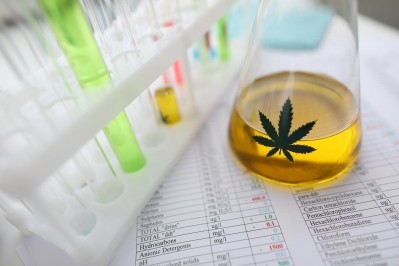CBD ruling major blow to industry

The comments follow the Food Standards Agency’s (FSA’s) announcement that it has set a 31 March 2021 deadline for all CBD projects to register for novel food status, or risk having their products pulled from store shelves.
Sarah Ellson, regulatory partner at law firm Fieldfisher, said the novelty status for CBD had been a blow for the industry that had, until now, been able to sell their products without heavy regulation.
She pointed out that getting authorisation for a novel food from the FSA and the European Food Safety Authority (EFSA) was burdensome and involved a dossier of scientific data, akin to getting a medicine authorised.
‘Interest of public safety’
“While this may be frustrating, it should be remembered that the rules are set in the interests of public safety, and that attempting to side-step or antagonise regulators could have serious consequences for individuals, companies and the CBD industry as a whole,” she added.
“For new and would-be market entrants to the novel foods arena, however, there are issues that need to be addressed around the lack of available data on CBD, inadequate testing infrastructure and a lack of standardisation across the industry.”
However, Christian Hendriksen, vice president of international expansion at Mile High Labs, told Food Manufacture that a clampdown on food products containing CBD that didn’t meet the EU regulations for novel foods would be difficult to enforce, due to a lack of resources at local authorities.
While his company and similarly sized businesses are pursuing compliance with novel foods standards, smaller businesses could slip through the net.
Operating without a licence
“There will be a large number of these smaller companies that won’t necessarily have the resources to go through this form of registration,” he said. “I definitely think there will be companies out there that will operate without a novel foods licence.
“However, if you’re a category manager or buyer at, say, Holland & Barrett, you will want the documentation, so it will limit your distribution. But I can’t see a scenario where trading standards will have the necessary resources to review every single non-compliant product on the market.”
Law firm DWF’s head of retail food and hospitality Hilary Ross said the move by the FSA to clamp down on CBD products could spell real trouble for manufacturers and would mean the end for those companies that could not afford the costly and time-consuming process of obtaining a novel food authorisation.
“SME operators complain that this approach will favour big pharma companies, which have the time and wherewithal to obtain such an authorisation,” said Ross.
Hannah Glasson, founder of CBD soft drink manufacturer Intune, welcomed transparency for the sector.
“We want consumers to know what they are consuming,” she explained. “As a start-up and member of Cannabis Trades Association we are working with them to review our approach to Novel Foods in light of this.
“Personally, I would like to understand why the FSA is actively discouraging the use of CBD alongside other medicines. What is the scientific basis for this new guideline? I found CBD when I had treatment for breast cancer. It helped me to feel focused and work all the way through that time. I would need to see a lot more hard evidence to support that advice.”
Meanwhile, the CBD Global Summit at the Park Plaza Victoria, London is a brand new two-day conference that brings together the cutting edge science, regulatory know-how and consumer insight to explore the CBD opportunity.
Brought to you by the William Reed Business Media via Food Manufacture's sister titles The Grocer, Food Navigator, Nutra Ingredients and Cosmetics Design, the Summit will feature experts and speakers from across the industry who will break down the ins and outs of the novel food ingredients and the opportunities that lie within.

















